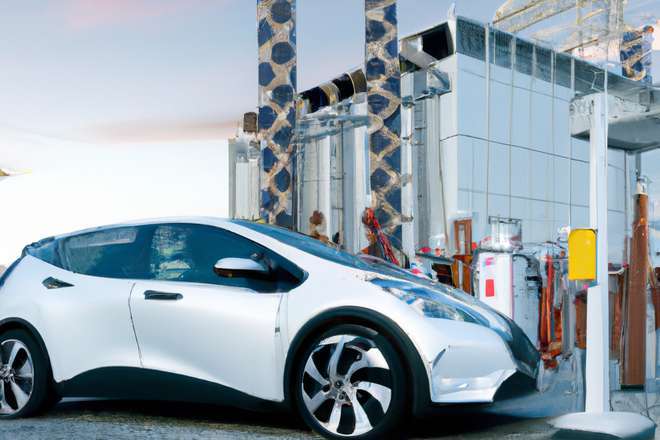
The Potential for Electric Vehicles to Reduce Dependence on Fossil Fuels
The use of fossil fuels, such as oil and gas, to power our transportation needs has had a significant impact on the environment. Burning fossil fuels emits greenhouse gases, which contribute to climate change, and the extraction and transportation of fossil fuels can have negative impacts on the environment and local communities. As such, finding alternative sources of fuel for transportation is crucial for achieving sustainable development.
One potential solution is the widespread adoption of electric vehicles (EVs). Unlike gasoline-powered vehicles, EVs are powered by electricity, which can be generated from a variety of sources, including renewable energy sources such as solar and wind power. This means that EVs have the potential to significantly reduce our dependence on fossil fuels for transportation.
In addition to their environmental benefits, EVs also offer economic advantages. As the technology behind EVs continues to improve and the cost of batteries decreases, EVs are becoming more affordable for consumers. Furthermore, the cost of operating an EV is typically lower than that of a gasoline-powered vehicle, as electricity is generally cheaper than gasoline. This can help save consumers money on fuel costs and make EVs a more attractive option.
However, the widespread adoption of EVs is not without challenges. One of the biggest obstacles is the lack of charging infrastructure, particularly in rural areas. Without access to charging stations, it can be difficult for people to use EVs as their primary form of transportation. Governments and private companies are working to address this challenge by building charging networks and offering incentives to encourage the use of EVs. And we're doing our bit too!
Overall, the potential for electric vehicles to reduce dependence on fossil fuels is significant. By shifting to EVs, we can reduce our greenhouse gas emissions, support the growth of renewable energy, and save money on fuel costs. As the technology behind EVs continues to improve and charging infrastructure becomes more widespread, EVs have the potential to play a major role in achieving sustainable transportation.
